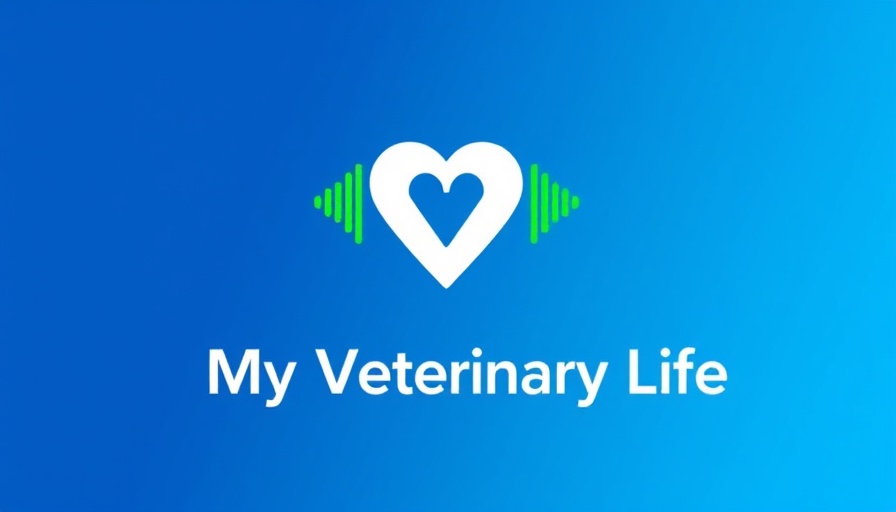
Revolutionizing Pet Care: Insights from Dr. Sandra Faeh
Connecting with our pets goes beyond companionship; it's about recognizing their health and wellness needs as paramount. Dr. Sandra Faeh, the Chief Medical Officer at NVA General Practice, excels in facilitating this connection. In her recent podcast interview, she shared pivotal insights that resonate deeply within the pet care community, offering guidance to pet owners, veterinarians, trainers, and those involved in shelters and rescues.
Understanding the Changing Landscape of Pet Healthcare
In today's fast-paced world, the approach to veterinary medicine is continuously evolving. Dr. Faeh emphasized the importance of adapting to new technologies and methods. As pet healthcare professionals embrace these advancements, both veterinarians and pet owners can access crucial information that enhances animal well-being. Moreover, by recognizing emerging trends, trainers and groomers can improve the services they offer. Innovations in pet tech, from wearable health monitors to telemedicine consultations, are changing traditional veterinary practices. Understanding these changes equips the pet community to advocate effectively for the health of their beloved animals.
Cultivating a Collaborative Environment
Dr. Faeh also touched on the vital relationship between veterinarians and pet owners. Effective communication is essential; pet owners need to feel empowered to discuss their animals' health concerns openly. This open dialogue fosters collaboration that can lead to better treatment plans tailored to the unique needs of each pet. Furthermore, trainers and groomers can play essential roles in this process by observing behavioral and physical changes that might prompt a visit to the vet. By viewing healthcare as a team effort, the outcomes for pets improve significantly.
The Role of Education and Awareness in Pet Wellness
Education is a significant focus for Dr. Faeh as she encourages pet owners to research and understand their pets' dietary, emotional, and physical needs. Greater knowledge leads to better care and enhances the bond between pets and their families. Whether it’s about choosing the right food or recognizing early signs of illness, awareness empowers owners to make informed decisions. As advocates for their pets, educating oneself helps pet owners support their animal's health proactively.
Addressing Sadness and Companionship in Animal Welfare
Dr. Faeh dove deep into the emotional aspects of pet ownership, tackling issues of grief and companionship related to pet loss, which can profoundly affect owners and their remaining pets alike. She expressed that understanding and supporting these emotional journeys are vital for both shelters and rescue organizations. Providing resources and counseling for pet owners, fostering a community that embraces shared experiences can help mitigate the sorrow that comes with losing a beloved companion. It’s a call to action for the entire pet care community to develop support systems for those grieving a loss.
What’s Next in Pet Healthcare: Future Perspectives
Looking ahead, Dr. Faeh anticipates a continued shift towards more integrative care—blending traditional veterinary practices with holistic approaches. Access to alternative therapies, nutrition-focused wellness plans, and mental well-being strategies will likely shape how pet healthcare evolves. The growing awareness around animal wellness will inspire new techniques that prioritize holistic health, ensuring our pets live longer, healthier lives.
Conclusion: Take Action for Your Pet’s Health
As we engage with the insights provided by Dr. Sandra Faeh, let us embrace the importance of learning, collaboration, and technological innovation in caring for our pets. Staying informed and advocating for our pets’ health not only uplifts their spirits but can truly enhance their quality of life. Therefore, pet owners, trainers, retailers, and healthcare professionals should unite in this effort, transforming the way we approach pet care today.
 Add Row
Add Row  Add
Add 


Write A Comment